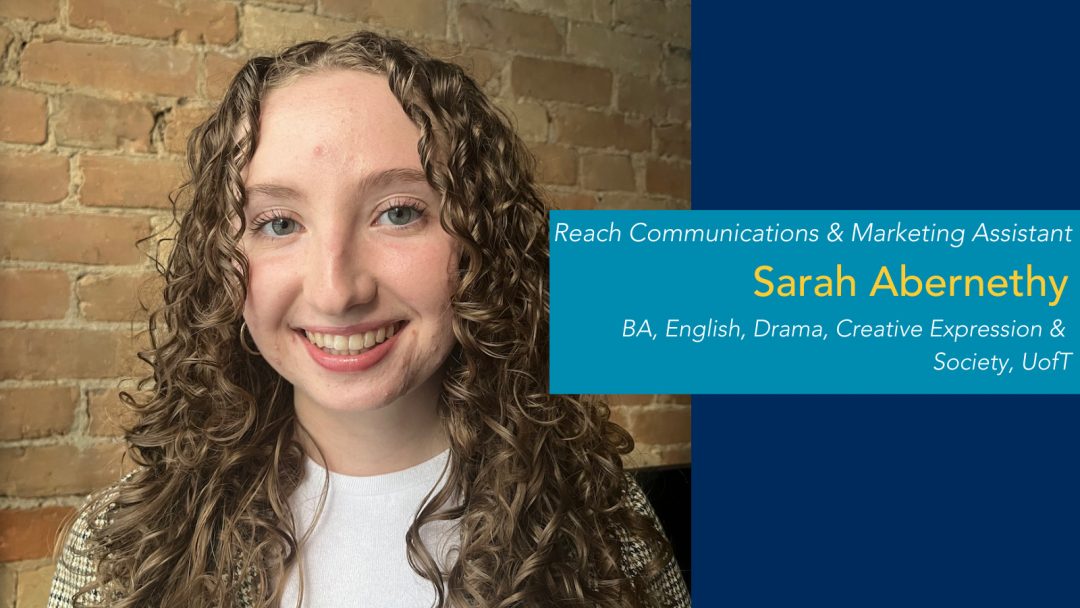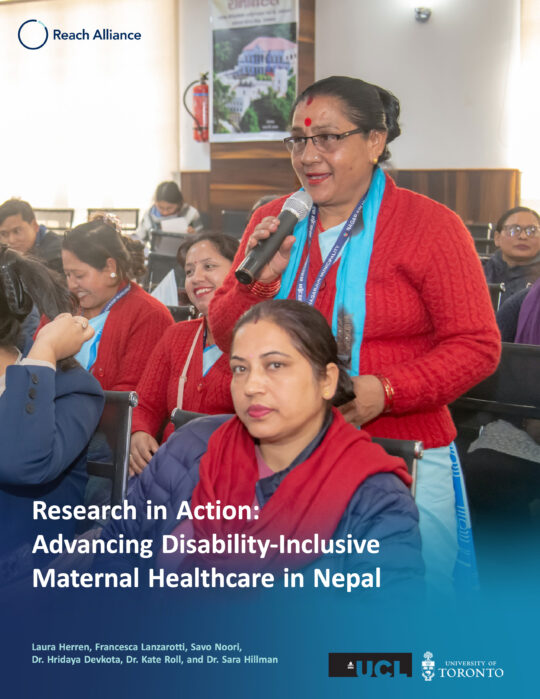
Author: Sarah Abernethy
I began my role as Communications Assistant at the Reach Alliance earlier this summer with little to no knowledge of the Alliance’s concrete work. I was interested in learning more about communications and digital marketing and found it was a great place to start, but I’m ending this summer with knowledge about so much more than just how to share information.
As a student myself, I’m well aware that the University of Toronto (U of T) produces a vast amount of academic research and that many of my peers are incredibly passionate about building a better future for the world. However, I had no idea how much, at all levels, can go into analyzing and bettering critical interventions supporting the hardest to reach. The Reach Alliance’s commitment to propel the Sustainable Development Goals through academic research makes it stand out from other initiatives I’ve encountered on campus.
For example, one of the most exciting things that I learned about Reach is that they have a growing network of academic institutions participating in similar work (UCL, Oxford, and TEC, alongside several new additions). An opportunity, especially for undergraduates, to have hands-on research experience in such an extensive academic community isn’t something you often hear of. But I realize now that their input is some of the most valuable that there is. After sitting in on the orientation session for the Reach 2022-23 student researcher cohort, I was mesmerized by my peers’ commitment to learning about the world and creating positive, sustainable change. That genuine desire to make a lasting difference is at the heart of the research that the Alliance produces.
Having the opportunity to help promote and share what Reach does, I feel as though I have garnered a brand-new perspective on what goes on behind the scenes when you click on one of their many case studies. Even more than that, I’ve learned so much about the potential impact of their work, whether it be towards mitigating climate change or investigating the efficacy of local social institutions anywhere in the world.
As I’ve been making Instagram graphics and writing up Tweets, one case study that really caught my attention due to its focus on issues affecting women and girls, is the 2019-20 case study “Why Women’s Police Stations in India Fail to Mitigate Violence Against Women” authored by U of T student researchers.
The study addresses how women’s police stations in India were seemingly instituted to “provide a female-friendly environment and female officers who are trained and equipped with the skills to deal with [violence against women] crimes.”
But the resulting research articulates how although women’s police stations in India have made some progress towards increasing the reporting rates of women experiencing violence, the broader issue of gendered violence is still vastly ongoing and requires deeper systemic routes for change. The case study suggests that women’s police stations must adapt to the realities of the justice system and systemic female oppression, particularly how this plays out in the domestic sphere. Stating, “if women’s police stations (WPSs) wish to effectively mitigate the effects of violence against women, they need to reach the most vulnerable women.” I also appreciated their attention to the realities of the local cultures they were investigating.
This Reach case study applies to two of the United Nations’ Sustainable Development Goals: Gender Equality (SDG 5) and Peace, Justice, and Strong Institutions (SDG 16). I think it is great that Reach is publicizing these case studies; to take the SDGs from simply loosely defined numbers and goals and instead present the world with real-life scenarios and real people who will be affected by positive change.
That kind of communicative translation that I’ve had the occasional hand in this summer is so important to make people like myself, who might be on the periphery of these academic communities, more cognizant of the depth and importance of research as it pertains to people and their lives. We all could do a little more to educate ourselves and learn about how we, too, can support work towards creating a more sustainable future for the world.
